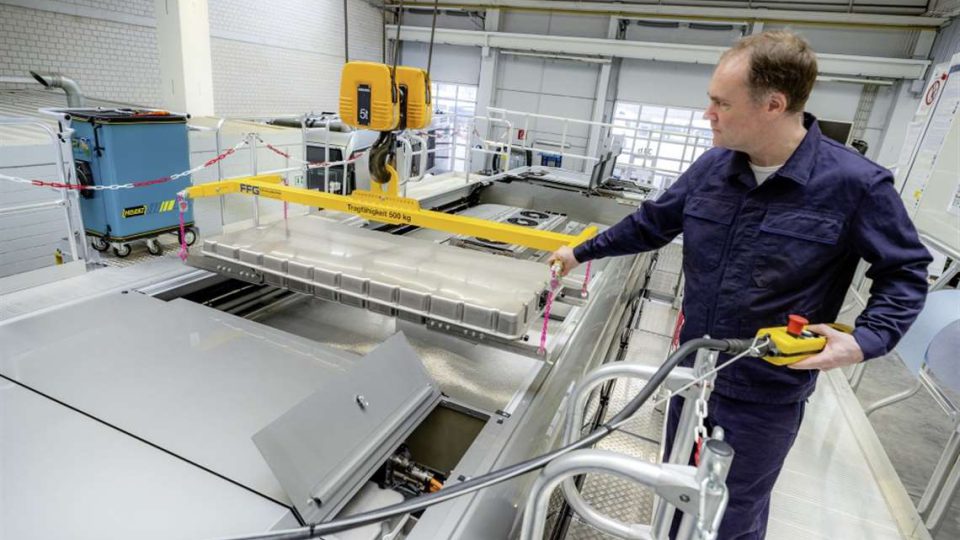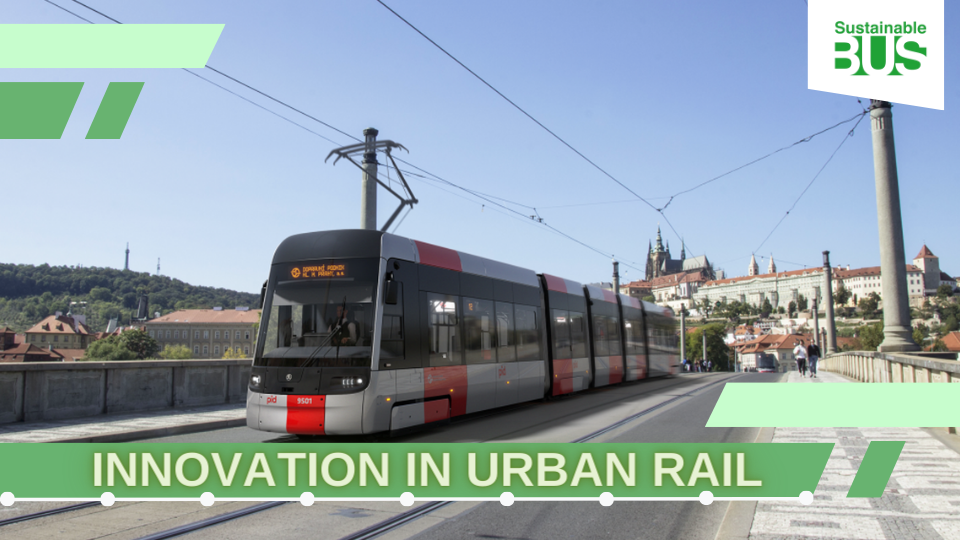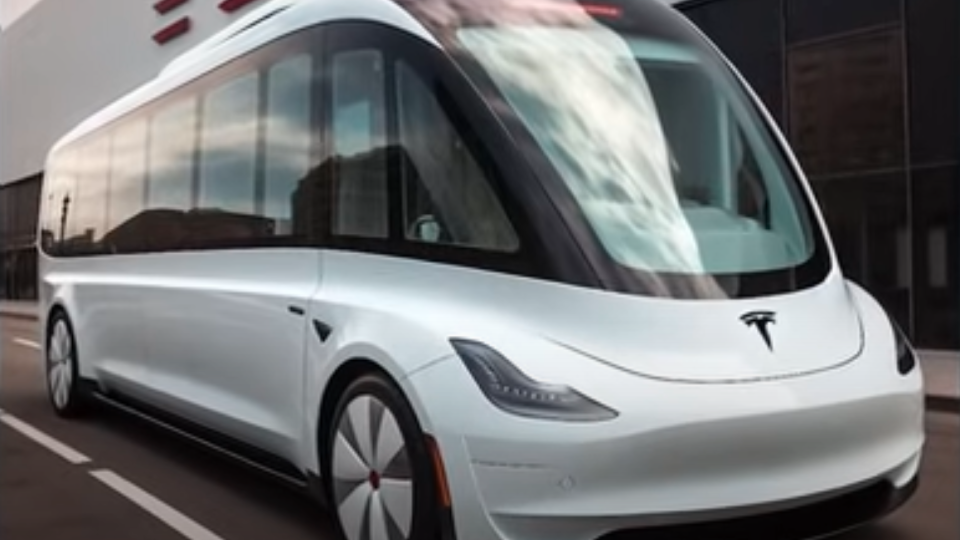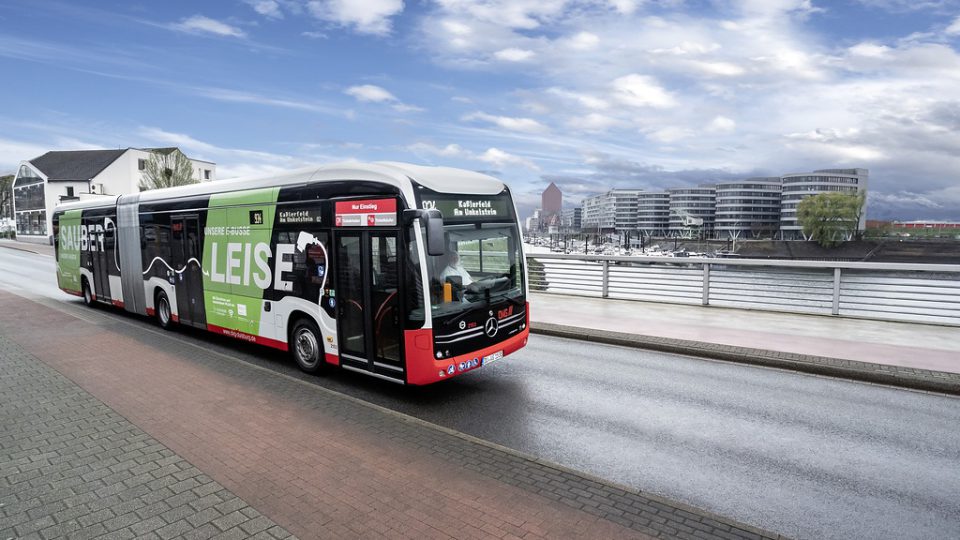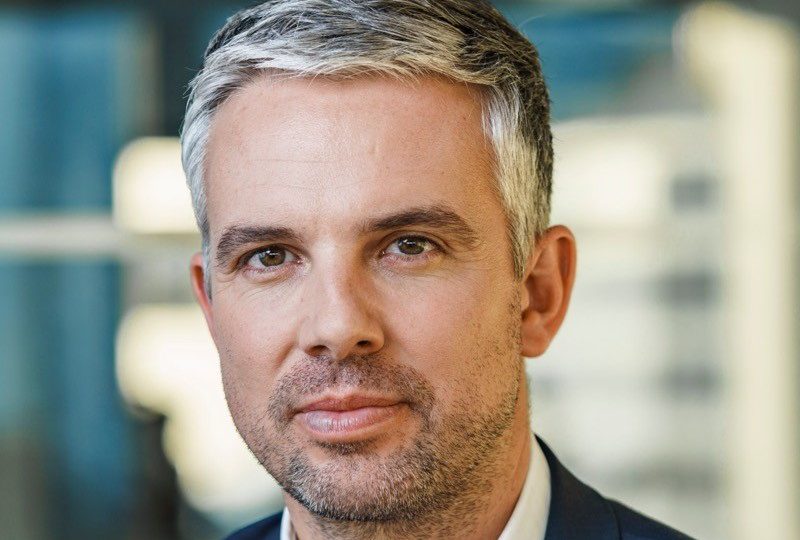The new BZL e-chassis, the e-bus offer in Europe, challenges and innovations in public transport. A talk with Volvo Buses’ President Anna Westerberg
The launch of the new BZL electric bus chassis is the latest novelty from Volvo Buses. The group is leading the European e-bus market as of mid-2021, mainly thanks to the huge 145-units delivery in Gothenburg. We had a talk with Anna Westerberg, who has been covering the position of president of Volvo Buses since […]

The launch of the new BZL electric bus chassis is the latest novelty from Volvo Buses. The group is leading the European e-bus market as of mid-2021, mainly thanks to the huge 145-units delivery in Gothenburg. We had a talk with Anna Westerberg, who has been covering the position of president of Volvo Buses since the beginning of this year.
Now we see that the demand for e-buses is really increasing; we have been working on this since a few years and now it is really happening. We have high ambitions to grow our electric bus business in selected countries in Europe
Anna Westerberg, President of Volvo Buses
Anna Westerberg on Volvo BZL electric chassis
Ms. Anna Westerberg, may you draw a balance of 2021 in terms of market volumes? From Volvo Buses perspective, how is the situation evolving?
«The city bus segment is very much recovering in Europe and the rest of the world as well. When it comes to the coach segment, the recovery has been slow so far but we start to see that demand is coming back now as restrictions are lifted and societies are opening up again».
You just launched the electric chassis BZL. In the presentation, the markets of Mexico, Australia and UK were mentioned…
«These are three very important markets for Volvo Buses. We are already present in Europe with a complete electic bus solution, and now we are launching also the electric chassis to take our electromobility offering global».
You have been testing e-buses in Mexico and sold some in the UK. Now, what will happen? E-buses and chassis will be both sold in parallel on this markets?
«The UK is more a chassis market, we’ll be mostly selling chassis and working with partners. And the same will be valid in Mexico, where we have been piloting a complete e-bus and it has been a good experience to gain knowledge on the real operation in that environment».
Should we expect any new partnership with local bodybuilders?
«We have several bodybuilding partnership already in force, and we’ll continue with our partners also on the electric bus side».
Volvo Buses, e-buses in the Nordics and… ?
Volvo Buses has been among the first bus producer to take the way to a full electrification of its city bus range in 2013 already I guess. Anyhow, the market penetration is limited so far, with mostly nordic countries involved. Now that the electric bus market is ramping up in many other countries, let’s just mention Germany, is Volvo going to take into consideration an expansion on new markets?
«We are very strong in the Nordics, it’s part of our heritage. But we sell our electic city bus in several countries in Europe. Now we see that the demand is really increasing; as you say we have been working on this since a few years and now it is really happening. We have high ambitions to grow our electric bus business in selected countries in Europe».
We believe that battery electric will be the right technology for intercity segment. And then when we move to coach applications, we think some will be covered with battery electric, others will need battery-electric drives together with fuel cells
Anna Westerberg, President of Volvo Buses
You have been previously in charge of Volvo Connected Solutions. Which lessons from that experience are you bringing to the bus segment?
«Yes, within Volvo Group Connected Solutions we provide a connectivity platform and connected services to Volvo Group customers all over the world. When it comes to electromobility, we have services for charging, zone management as well as fleet management services and reporting. We are really into this industry transformation, which is driven by connectivity, electromobility and autonomous driving. I believe experience from my former job is very relevant in the bus industry, since connectivity is a key enabler for creating new services to better support our customers and also new business models».
Anna Westerberg: the amount of energy becomes our responsibility
Volvo Buses has recently announced that the company is now offering its useable energy commitment as a business solution for electric buses. May you be more specific on this subject?
«It’s a usable energy commitment. We saw that supporting our customers during their first step into e-mobility is key. What we do is work with customers, looking at the characteristics of their operations with electric buses (climate, number of passengers, topography…) and calculate what could be a sufficient energy amount required for the operations. Then we monitor the health and the state of batteries during the contract period, and we guarantee a certain amount of usable energy during that period. This becomes our responsibility. Battery replacement is included in the contract, and in this way we take care also of second life and recycling of batteries within our group».
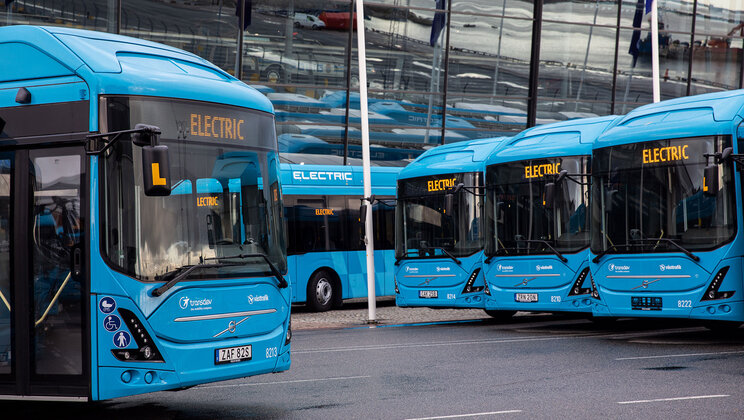
It means you are offering a ‘warranty’ that the performances of the e-bus will keep up with the needs of the customer, and when performances lower, is the manufacturer to step in?
«Exactly: we take responsibility for that, as long as the criteria that we specify upfront with the customer have been followed».
Let’s put a focus on intercity buses: Volvo Buses is still commercializing Class II vehicles in some European countries. Now we see internal combustion engines buses will be less subsidized in many countries. Which technology are you targeting for the intercity segment?
«We believe that battery electric will be the right technology for this segment. And then when we move to coach applications, we think some will be covered with battery electric, others will need battery-electric drives together with fuel cells».
Anna Westerberg, Volvo and the future of fuel cell buses
A few years ago, the previous president of Volvo Buses said that at the moment the company was not taking into consideration hydrogen applications. Now, with Next Generation EU, lots of attention and investments are being focused on this technology. And Volvo as a group is investing in it, let’s mention the truck business. What about bus & coach? Are the cellcentric activities going to have consequences on the bus business?
«Technology is constantly developing and we are actively evaluating options for zero emission vehicles. For city and intercity applications, battery electric buses are a more viable solution but for longer journeys, especially for coaches, fuel cell electric powertrains will be a possible solution in the future. Through the cellcentric joint venture we will follow the development of fuel cell electric powertrains to see where it can be a good complement to battery electric buses».
Electromobility and digitalization, plus maybe the covid stress test, are bringing a change in the industrial scenario. A couple competitors of yours are on their way to a spin off (Iveco and Daimler), others have joined forces and are restructuring activities (MAN), some newcomers are expected (Arrival, Hyzon….). How is a wide and aged group like Volvo dealing with these changes?
«Volvo group is one of the leading groups when it comes to transport and we are investing heavily in these areas. We are in a good position for the long run to lead the industry in this transformation towards a more sustainable future. When it comes to electromobility we have a plan for the full range going electric and accelerating on the services and solutions side».

